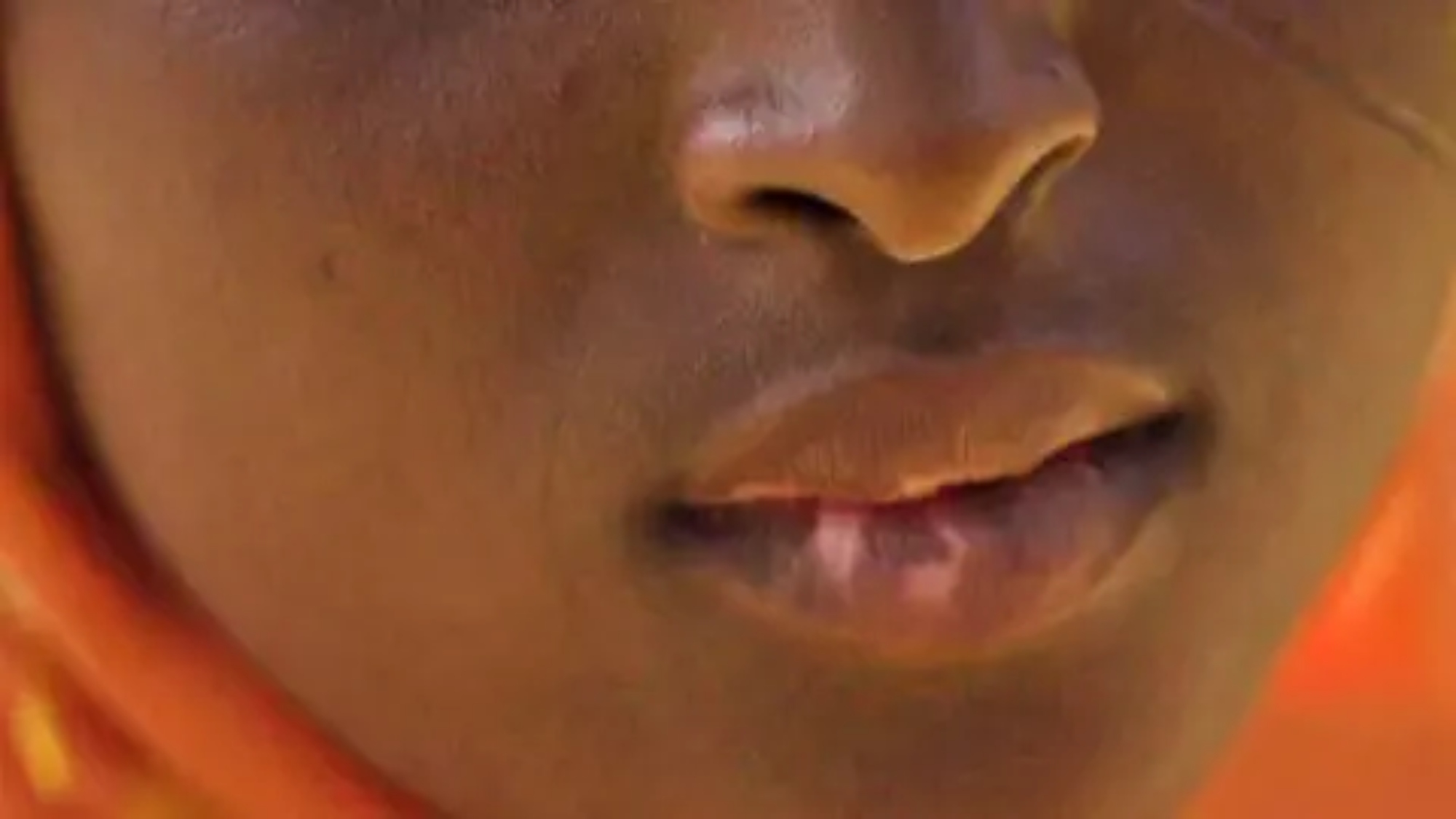A mother in northern Nigeria is visibly distressed as she holds her two-year-old child, whose face and legs are marked with burns and discolored skin. The 32-year-old woman, under pressure from her family, had used skin-whitening products on all six of her children—decisions she now deeply regrets.
Fatima, a pseudonym to protect her family's identity, explains that one of her daughters now hides her face whenever she goes out to conceal her burns. Another daughter has developed darker skin, with a pale ring around her eyes, while a third child bears whitish scars on her lips and knees. Her toddler, meanwhile, still has open wounds that are taking a long time to heal.
"My sister gave birth to light-skinned children, but my kids are darker. I noticed my mother favoring my sister’s children over mine because of their lighter skin, and it really hurt my feelings," Fatima says. She admits to buying the creams at a local supermarket in Kano, without any medical guidance. Initially, the products seemed to work, and Fatima’s mother began showing more affection toward her children, aged 2 to 16 at the time. But soon after, burns and scars began to appear.
Skin-whitening, or "bleaching," as it’s called in Nigeria, is used worldwide for cosmetic reasons, often with deep cultural motivations. In Nigeria, women use these products more than anywhere else in Africa—77% of Nigerian women reportedly use skin-lightening products regularly, according to the World Health Organization (WHO). This is higher than in other African nations such as Congo-Brazzaville (66%), Senegal (50%), and Ghana (39%).
These creams may contain harmful substances like corticosteroids, hydroquinone, mercury, and kojic acid—ingredients that can cause severe health problems, including dermatitis, skin discoloration, acne, kidney damage, and even mercury poisoning. The skin can become thinner, resulting in slower healing of wounds and increased susceptibility to infections, according to the WHO.
The situation is so critical that in 2023, Nigeria's National Agency for Food and Drug Administration and Control (NAFDAC) declared a state of emergency over the issue. Alarmingly, it's becoming more common for mothers to bleach their children, as Fatima did.
“A lot of people associate light skin with beauty or wealth. Women often bleach their children to protect them from discrimination, starting from birth,” explains Zainab Bashir Yau, a dermatologist in Abuja. She estimates that 80% of the women she encounters have either bleached their children or plan to do so. Many of these women were themselves bleached as babies, perpetuating the cycle.
One visible sign of skin-whitening use in Nigeria is the darkening of the knuckles, which contrast with the lighter skin on other parts of the body. However, this can also happen to smokers or drug users, leading to confusion and discrimination. Fatima’s daughters, aged 16 and 14, have experienced this firsthand. They’ve been labeled as drug addicts, which has deeply affected their self-esteem and even led to them losing potential suitors.
I visited a bustling market in Kano, where "mixologists" create skin-whitening creams on demand. The market has a long row of shops filled with thousands of these products. Some creams are pre-mixed, while others are custom-made with ingredients chosen by the customer. Many of the creams labeled for babies contained regulated substances, including kojic acid and hydroquinone. One seller openly admitted to using illegal amounts of these substances, which can cause side effects like rashes and more severe health issues.
Teenage girls were also spotted buying bleaching products in bulk, sometimes for resale to their peers. One mother, despite having discolored hands from using the products herself, insisted that the same agents should be used to lighten her children’s skin, claiming that her own condition was simply due to using the wrong product.
The sale of these products, especially those containing regulated ingredients, is illegal for use on children. Yet many buyers, unaware of the dangers, continue to seek out these products. One vendor admitted to using far higher amounts of kojic acid than the prescribed limit for customers desiring lighter skin. The approved dosage of kojic acid in Nigeria is 1%, according to NAFDAC.
NAFDAC has been taking steps to address the issue by educating the public and conducting raids to seize harmful skin-lightening ingredients at the borders. However, Dr. Leonard Omokpariola of NAFDAC explains that law enforcement often struggles to identify these substances, as they are sometimes transported in unlabeled containers, making them difficult to detect without laboratory analysis.
Fatima reflects on her decision with deep regret. "When I told my mother what I did, she was saddened by the effects on my children. She apologized, especially when she understood the dangers and the stigma they were now facing," she says. Fatima is determined to prevent other parents from making the same mistake.
"Even though I've stopped, the side effects remain. I beg other parents to learn from my situation and avoid this mistake."
Popularity of skin-lightening products in Africa
Proportion of women who regularly use them, in selected countries
Nigeria - 77%
Congo-Brazzaville - 66%
Senegal - 50%
Ghana - 39%
South Africa - 32%
Zimbabwe - 31.15%
Mali - 25%


.jpg)